- Make It Yourself Lavender Heart-Shaped Bath Bombs!
- 20 Things You Never Knew About “Down There”
- 12 Best Foods For Those Suffering From Arthritis Pain
- 12 Personal Hygiene Mistakes Almost Everyone Makes (Mom Never Told You About #4!)
- 15 Medicinal Plants And Herbs From The Cherokee People
- 12 Mind-Blowing Benefits Of Drinking Coconut Water During Pregnancy
- 12 Outstanding Winter Foods That Won’t Fatten You Up Like A Christmas Turkey
20 of the Most Outstanding Foods to Beat This One Deadly Cancer
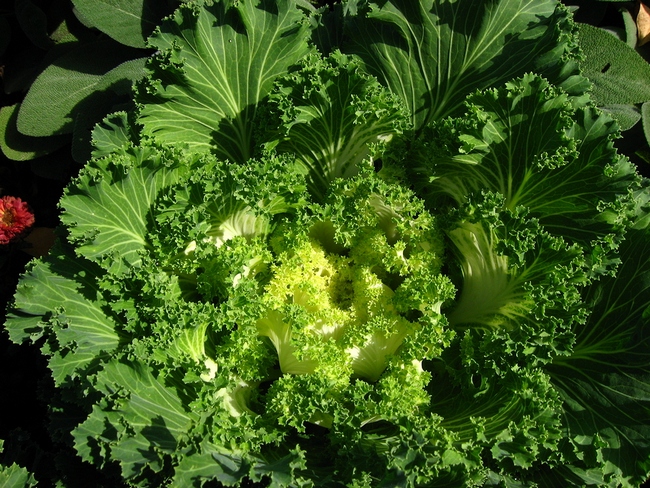
Photo credit: bigstock.com
More than one million people are diagnosed with stomach cancer each year. It is very common in many parts of the world, including the US; however, recent reports show that the rates of stomach cancer are rising worldwide, especially among young people in the UK.
One of the problems with stomach cancer is that it frequently goes undetected until it is too late. There are no lumps, often no pain other than indigestion, and nothing that shows up on an X-ray. This means that, often, the only way to find it is through an endoscope, which is a camera that is inserted down the throat so that the stomach can be examined. Once this type of cancer is discovered, it can also be notorious to treat.
OK, that sounds like a whole bunch of bad news. The good news is that there are plenty of foods that can protect you from this type of cancer, or have even been shown to destroy cancer cells.
Keep reading and find out which 20 foods are simply the best at knocking out stomach cancer.
1. Kale
Kale has a very broad nutritional profile that offers us plenty of benefits beyond its basic nutritional profile. This member of the cabbage family has tons of cancer fighting compounds, including vitamin C and beta-carotene. In fact, ounce for ounce, kale has ten times the beta-carotene of broccoli.
Kale is super high in powerful antioxidants which kill off the free radicals that cause so many health problems and premature aging. Young, tender kale leaves can be added to salads and more mature leaves can be baked or sautéed with other vegetables. Since it’s a known cancer fighter, doesn’t it make sense to add it to your meals any way you can?
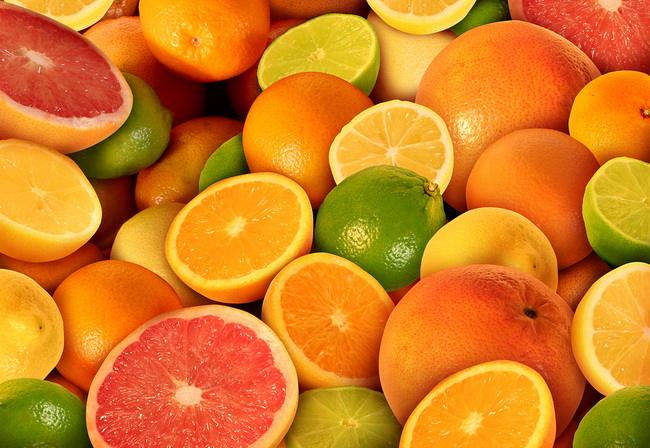
Photo credit: bigstock.com
2. Citrus Fruits
Every elementary school aged child knows that fruits such as grapefruits, tangerines, oranges, lemons, and limes are terrific sources of vitamin C. But did you know that vitamin C does a lot more for the body than simply improve the immune system and fight colds? Vitamin C is a super free radical fighter. Free radicals are a type of chemical reaction in the body that damages our DNA. When our DNA becomes damaged, the cells become mutated, which is the first step toward the production of cancer. Vitamin C is a natural shield, protecting the body by neutralizing free radicals as they form.
Zest from the peels of citrus fruits also contains an important nutrient called flavonoids. Flavonoids are known to stop cancer cells from damaging you by stopping them from invading healthy tissue. So adding just a little orange or lemon zest to your salad would be giving your body a double whammy of protection. Even better news is that you don’t have to eat a kilo of oranges every day to get the protection you want. One citrus fruit each day will give you the benefits you are looking for.
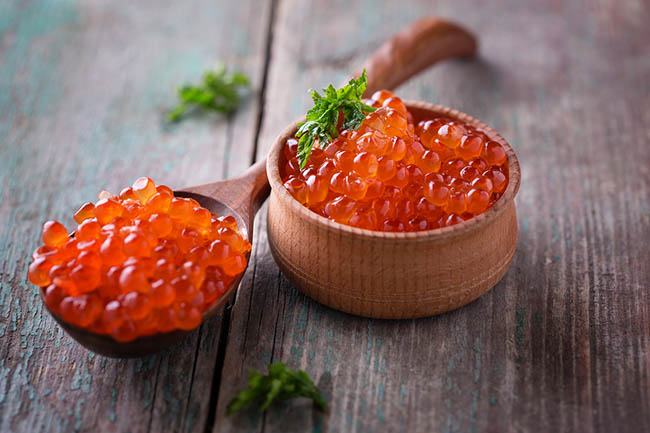
image credit: bigstock
3. Fish Eggs
It doesn’t have to be caviar; there are several types of fish eggs that have been shown to protect the body from stomach cancer. Salmon eggs, hake, and lumpsuckers are some of the best eggs to consume.
This is because these types of fish eggs contain very high levels of omega-3 fatty acids. Studies show that the eggs of these fish have more omega-3 fatty acids than even the fattiest fish around. If you can’t find these kinds of fish eggs in your area, look for krill oil, which is a close second.
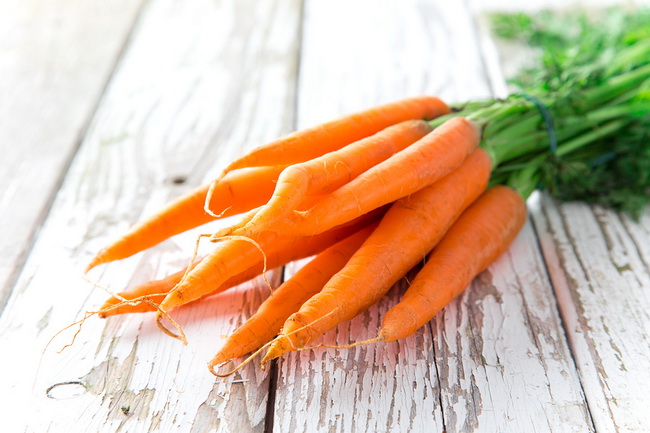
Photo credit: bigstock.com
4. Carrots
Bugs Bunny had a good thing going with those carrots he was always eating, didn’t he? Beta-carotene is what gives carrots their orange color and it’s a powerful antioxidant.
Beta-carotene works much the same way that vitamin C does when it comes to killing off those free radicals. While vitamin C scours the blood, looking for free radicals, beta-carotene guards the surface of each individual cell to stop DNA damage before it begins.

Photo credit: bigstock.com
5. Shiitake Mushrooms
These big, meaty mushrooms are a terrific addition to your diet as they contain plenty of selenium, a powerful anti-cancer mineral. They are also a good source of beta-glucans, which attack cancerous celis beta-glucans, in studies done involving humans. Beta-glucans have anti-cancer and anti-tumor compounds that have been proven again and again in studies done with animals.
Just one cup of shiitake mushrooms gives you more than half of your recommended intake of selenium. So if you are a mushroom lover, add these to your diet for extra protection from all types of cancer, including stomach cancer.
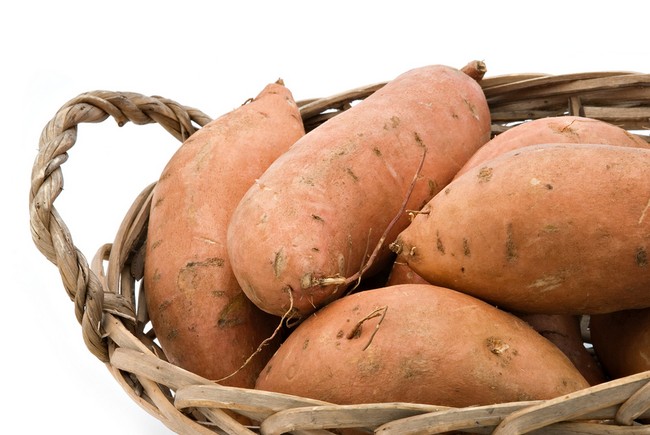
Photo credit: bigstock.com
6. Sweet Potatoes
Those delicious orange-colored sweet potatoes! Who doesn’t love them?! Now you will love them all the more. These vegetables are also rich in beta-carotene, much like carrots.
They also contain something that carrots don’t, however- a substance called caffeic acid. Although this sounds like something in your coffee, it’s actually a substance that cuts off the blood supply to growing tumors, killing them. Don’t wait for Thanksgiving- make up some sweet potatoes for dinner at few times each week!
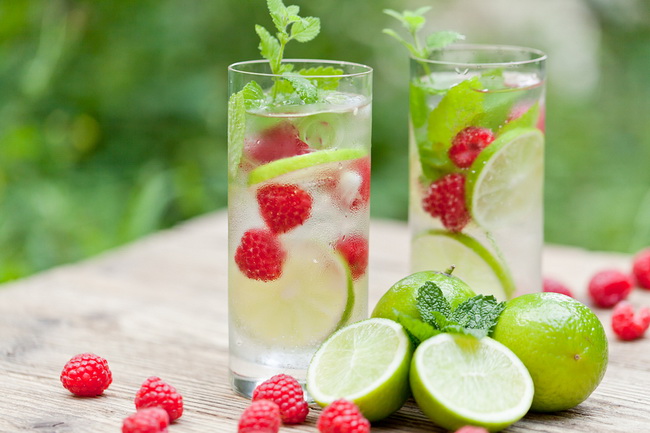
Photo credit: bigstock.com
7. Raspberries
Although all berries are super healthy due to their high levels of antioxidants, raspberries are also rich in ellagic acid, which is a natural anti-mutagen, cancer inhibitor, and anti-carcinogen. Some studies have shown that raspberries cause cell death (known as apoptosis) in cancer cells. Although ellagic acid can be found in various other foods, none contain more than raspberries.
In fact, raspberries keep their ellagic acid even after they are frozen or if they are heated. So keep a bag in your freezer or make some raspberry jam from fresh raspberries so that you can eat some of these super stomach cancer fighters no matter the season!
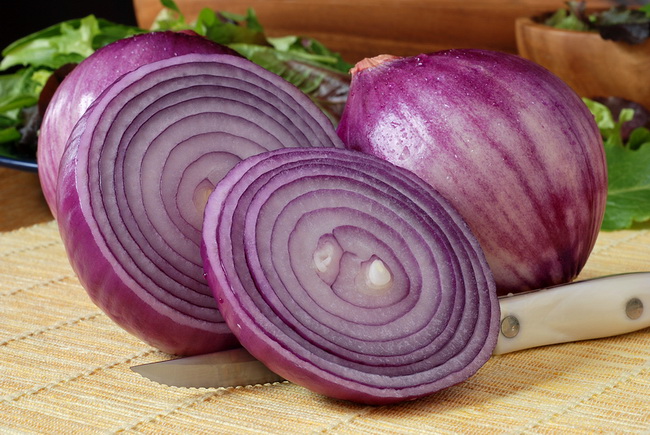
Photo credit: bigstock.com
8. Vegetables with Allium
Vegetables that contain allium are generally very strong smelling vegetables such as onions, shallots, leeks, and scallions. The compound that gives these vegetables their smell is called alllicin.
Alllicin is a well-known and well-proven cancer fighter. Simply by adding more onions and scallions to your diet, you can greatly increase your protection from developing stomach cancer.
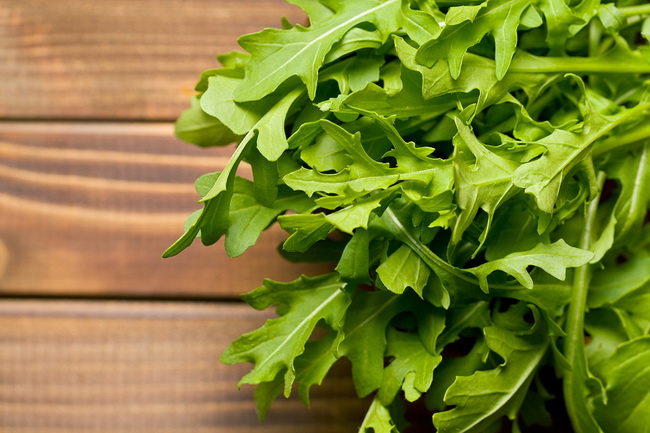
Photo credit: bigstock.com
9. Arugula
This might be the perfect salad ingredient! Low in calories but high in phytochemicals and vitamins, several studies suggest that arugula can help reduce the risk of developing several types of cancer, including stomach cancer. In some countries, this is called Rocket Salad. No matter what you call it, arugula is an excellent source of glucosinolates.
When chewed, these glucosinolates, with the help of an enzyme your body makes called myrosinase, turns these glucosinolates into isothiocyanates, which has been shown to inhibit cancer cell proliferation and neutralize carcinogens in the body. This salad green is also rich in chlorophyll, well known for its anti-cancer compounds. This one little green also has vitamin C and beta-carotene, about 5 times the amount you would find in plain iceberg lettuce. Adding arugula to your salads can be one of the tastiest and easiest ways to fight stomach cancer.
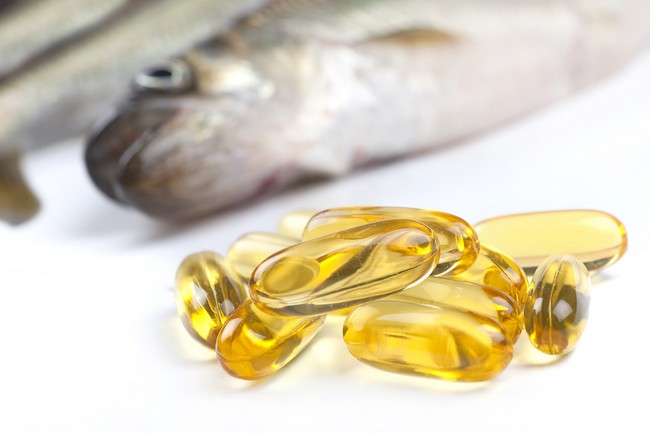
Photo credit: bigstock.com
10. Fatty Fish
Cold water fatty fish, such as tuna, sardines, salmon, and anchovies, all contain high levels of omega-3 fatty acids. These fatty acids have been reported to have a protective effect against stomach cancer and other types of diseases. Wild caught salmon in particular has been shown to be high in astaxanthin, which is a carotenoid that makes salmon meat look pink.
Astaxanthin is a powerful antioxidant, which is highly effective when it comes to fighting free radicals and stopping the damage that they cause. Wild salmon is your best bet but it can be pricey and difficult to find. Don’t bother with the factory farmed salmon that is filled with PCB’s and other dangerous chemicals. If you are worried about mercury contamination or if you can’t find wild caught salmon in your area, consume about 2 grams of fish oil supplements daily.

Photo credit: bigstock.com
11. Foods with Quercetin
Quercetin is a bioflavonoid that has powerful anti-fungal, anti-inflammatory, anti-bacterial, and anti-cancer properties. Foods that are high in quercetin are red grapes, broccoli, apples, capers, lovage, lingonberries, cherries, cranberries, citrus fruits (pink grapefruit is especially good), and red or yellow onions.
One study showed that eating one half of an onion each day can cut your risk of developing stomach cancer in half.
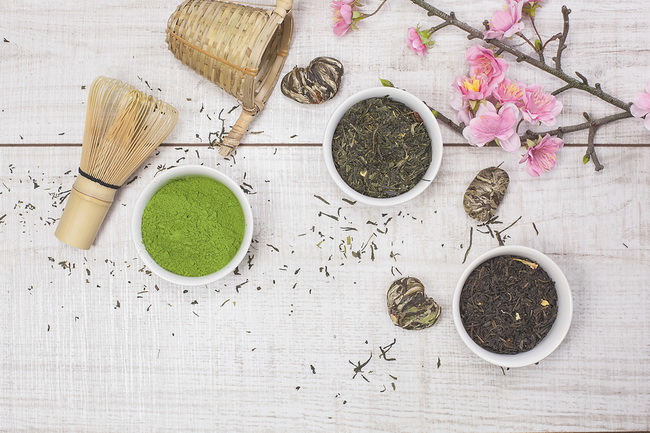
Photo credit: bigstock.com
12. Green Tea
You might think of green tea as something for those who wish to drop a few pounds, but green tea has many, many health benefits to offer us as well. Green tea has been shown in a growing amount of studies that it can prevent many types of cancer, including stomach cancer. Studies done in vitro show that green tea can help to stop nitrification in the body. This is a chemical reaction that has been linked to both cancer of the esophagus and stomach cancer. Not only does green tea help to arrest stomach cancer, but it has also been shown to be effective at protecting the cells in the body against DNA damage from free radicals.
Green tea will also suppress urokinase, an enzyme that is believed to play an important part in the metastasis of cancer cells. If possible, choose loose tea leaves rather than tea bags. Loose tea has been shown to impart more of the healthy catechins into the water than tea bags do. You might also want to think about adding a squeeze of fresh lemon juice into your tea as studies show that the vitamin C can help to increase the amount of catechins available for your body to absorb.

Photo credit: bigstock.com
13. Broccoli
No anti-cancer list would be complete without broccoli. If you want to supercharge any anti-cancer diet, simply add broccoli. One study out of Japan showed that subjects who added fresh broccoli to their diets for a period of two months had lower levels of the Helicobacteri pylori than the control group who consumed alfalfa sprouts. Find out more broccoli benefits.
Helicobacteri pylori are considered to be a major factor in the development of stomach cancer.

Photo credit: bigstock.com
14. Turmeric
The active ingredient in turmeric is curcumin, which is a phytochemical that gives turmeric its bright yellow color. Turmeric has been used in both Chinese and Ayurvedic medicine for centuries as both a spice and as a medicine. Western scientists have been giving this spice a great deal of attention lately.
According to many studies, turmeric has powerful anti-cancer compounds. This spice appears to have stronger anti-cancer compounds than any other spice tested, which makes it perfect for the prevention of many types of cancer, including stomach cancer. The University of Chicago did one study where researchers showed that turmeric inhibits Helicobacteri pylori, a major factor in the development of stomach cancer. Turmeric has been shown in numerous studies to cause cancer cell death (apoptosis) and destroy free radicals in the body.
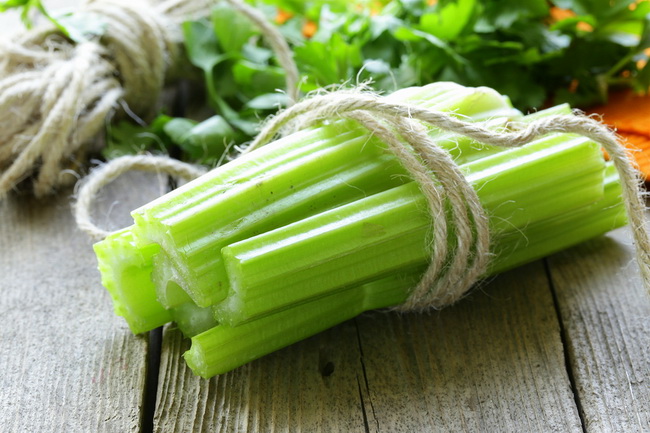
Photo credit: bigstock.com
15. Celery
With high levels of both vitamin C and vitamin E, organic celery is a double whammy of protection when it comes to stomach cancer. In addition to its high levels of these cancer fighting vitamins, celery also has at least 8 cancer fighting compounds such as phthalates, which are a type of bioactive chemical that acts as a chemo-protective agent.
Celery also has acetylenes and phenolic acids, which slow the growth of tumor cells. Be sure to purchase organic celery as conventional celery always has high levels of pesticide contamination, including chlorothalonil, which is thought to be a human carcinogen.

Photo credit: bigstock.com
16. Low Glycemic Foods
Sugar feeds cancer cells, there is no doubt there. So it only makes sense to choose foods that are naturally low on the glycemic index. Foods with low glycemic ratings maintain stable blood sugar levels because they are digested more slowly. Foods that break down quickly, such as carbohydrates, cause extreme fluctuations in blood sugar levels.
Foods with high glycemic levels have been linked to an increased risk of several types of cancer, including stomach and intestinal cancer. High blood sugar levels stimulate the secretion of insulin, which has been shown to stimulate the growth of tumors as well as the metastasis of cancer. Eat plenty of non-starchy veggies, such as broccoli, cabbage, and kale, as well as legumes and fruit and less bread and pasta.
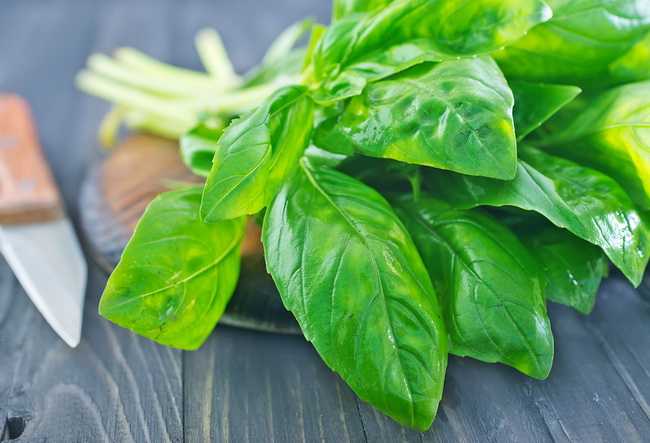
Photo credit: bigstock.com
17. Salt Substitutes
Studies show that a diet high in sodium can increase the risk of stomach cancer. In parts of the world where salt consumption is high (such as in Japan) people tend to have higher incidences of stomach cancer. In areas where refrigeration, rather than salt, has been used as a means of preserving food, rates of stomach cancer have fallen dramatically.
Limit the amount of salt you use by adding other spices such as garlic and onions (both of which are excellent cancer fighters), basil, and other herbs that add flavor without adding salt. Also, look carefully for hidden salt or sodium in packaged foods, such as ketchup and frozen vegetables, soups, and frozen dinners. Always cook fresh food for your family whenever possible so that you can get all the nutrition you need and none of the salt you don’t want.
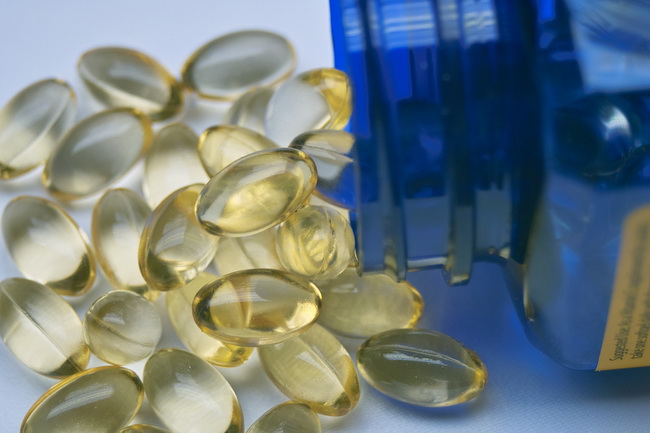
Photo credit: bigstock.com
18. Get Plenty of C and E
Vitamins E and C are both known to neutralize the free radicals that can cause cancer, as well as improve the immune system. Both of these vitamins inhibit the formation of nitrosamine, a substance that is known to cause stomach cancer.
SEE ALSO: Are You Insane? How Lack of One Vitamin Can Make You Go Crazy!
You can get both of these by eating more fruits and vegetables such as kiwi, grapefruit, grapes, and celery.

Photo credit: bigstock.com
19. Garlic
We’ve been talking about nitrosamine, a substance that is known to cause stomach cancer. Garlic has been shown to reduce the formation of nitrosamine by more than 90 percent. Garlic has been used for thousands of years because it adds flavor to foods but also because of its medicinal compounds. Not only has garlic been shown to be effective when it comes to heart health, but it also has been shown to beat many cancers, including cancer of the stomach.
One study used 40 healthy human subjects that were first told to consume a meal that was designed to increase their levels of nitrosamines. Then these same subjects were given either 10 ounces of strawberries, 7 ounces of kale juice, 2.6 ounces of garlic juice, or nothing at all. The group that consumed the garlic, kale, and strawberries all had lower levels of nitrosamines, but the group that received the garlic had the most dramatic results with a 96 percent reduction in the formation of nitrosamines. This is remarkable when you consider that the group that consumed kale juice had a mere 44 percent reduction and the strawberry group saw a 72 percent reduction.

Photo credit: bigstock.com
20. Eat More Beta-Carotene and Vitamin A
Scientists will tell you that there is a definite relationship between stomach cancer and the consumption (or lack of it) of foods that are rich in beta-carotene and vitamin A. In one study alone, more than 80,000 Swedish adults who were told to consume a diet rich in both of these compounds had a much lower risk of developing stomach cancer.
Eat more kale, spinach, winter squash, carrots, and sweet potatoes to lower your risk of developing this silent killer.
References:
































